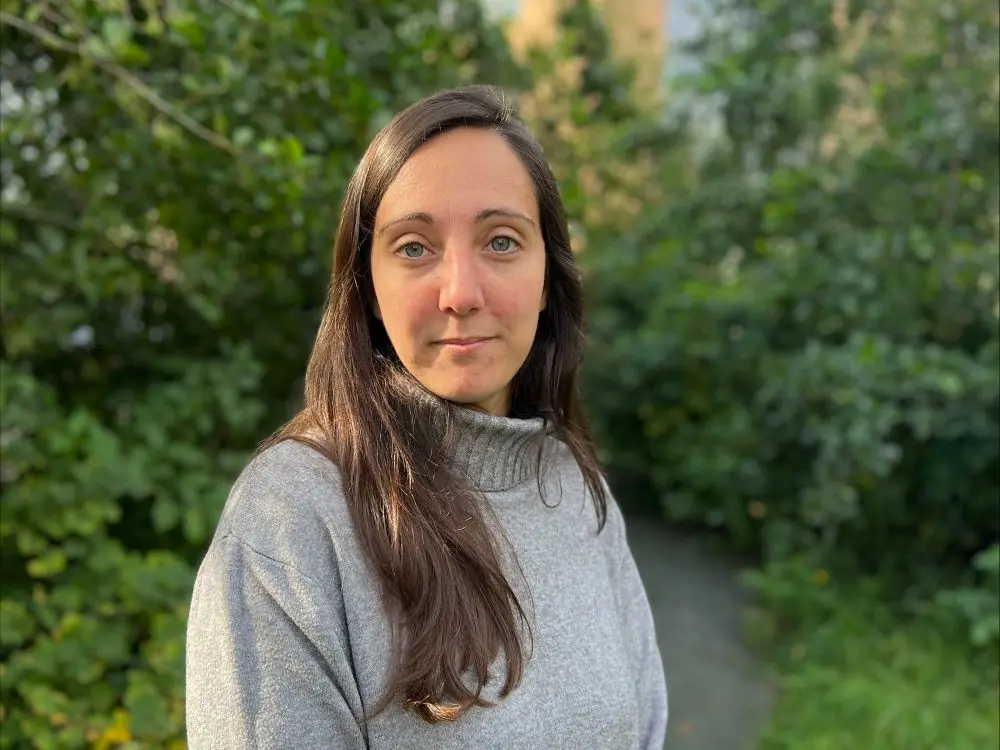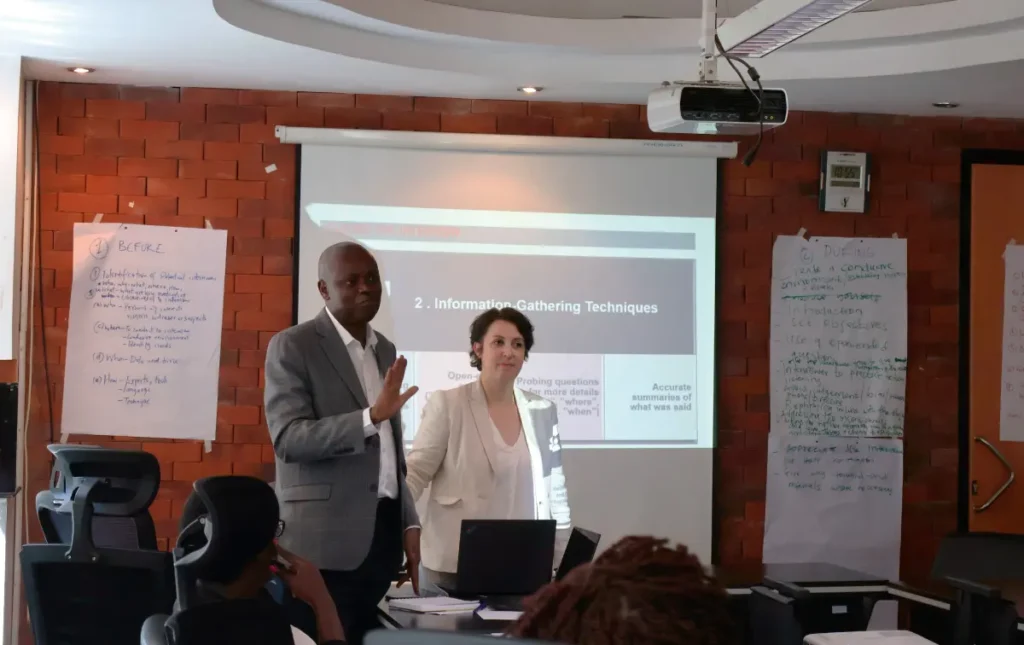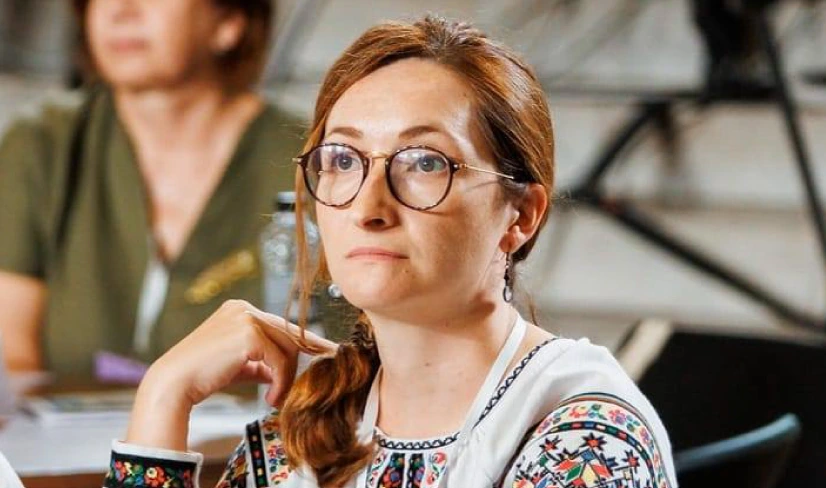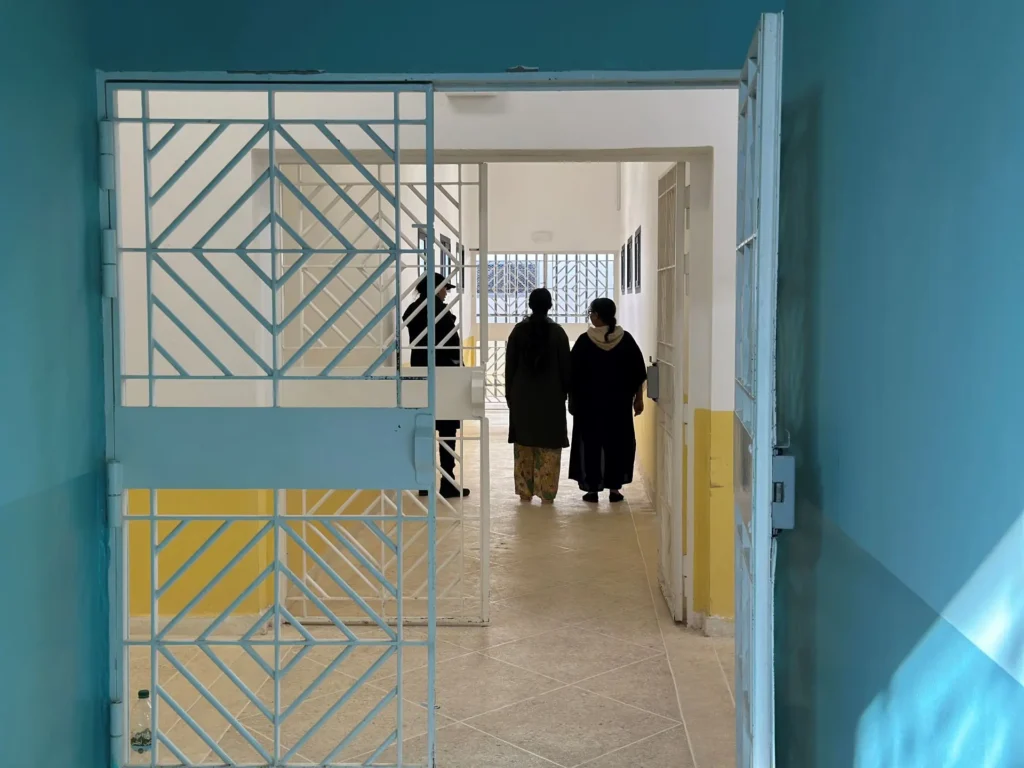The first verdict against a former member of Lukashenko’s regime in Belarus, is expected to be delivered by a tribunal in St. Gallen, Switzerland, on Thursday, September 28.
The case was initiated by relatives of two of the victims and is supported by the International Federation for Human Rights (FIDH), TRIAL International, and Viasna, which also filed a criminal complaint.
We asked DIGNITY’s legal advisor Natacha Bracq about the significance of the trial and how cases related to international crimes are conducted in other countries.
1. What is the significance of the trial of Yuri Harauski in Switzerland, and why is it considered a landmark case of international justice?
Yuri Harauski is a former member of the Belarusian special security forces, and he is the first individual from Lukashenko’s regime to be brought to justice. His is accused of being involved in the disappearance of two political opponents of the Belarusian President and a businessman in 1999.
His trial not only marks an important step towards justice for the crimes committed by Lukashenko’s regime but also represents a milestone for international justice as it is the first case of enforced disappearance to ever be prosecuted based on universal jurisdiction by a domestic court.
2. Can you explain the legal principle of universal jurisdiction and how it allows foreign courts to prosecute severe crimes that occurred in other countries, as applied in this case?
The principle of universal jurisdiction allows national courts to prosecute individuals for serious crimes, such as war crimes, crimes against humanity, genocide, enforced disappearance, or torture, even if those crimes were committed in another country and neither the perpetrator nor the victim is a national of the prosecuting country.
This principle is based on the idea that some crimes are so grave and universally condemned that they concern all of humanity, and therefore, any country has the right and duty to prosecute the perpetrators, regardless of where the crimes occurred. Several States have already prosecuted crimes based on this principle, such as France, Germany, the Netherlands, and Sweden.
3. Human rights violations have been committed more than 20 years ago – how is it possible to have evidence?
This is one of the most challenging parts of universal jurisdiction cases. In addition to the lack of cooperation from the State where the crimes occurred or the limited access to its territory, national prosecutors must also grapple with additional difficulties stemming from the elapsed time between the commission of the crimes and the prosecution.
However, in the case of Yuri Harauski, he agreed to cooperate with the Swiss authorities and confessed to the crimes. He also openly admitted to his involvement in the disappearance in an interview with the Deutsche Welle in 2019.
4. What do you think that this trial will mean for the human rights defender’s civil society organizations in Belarus?
It conveys a strong signal to the human rights community in Belarus, because they have been significantly impacted by Lukashenko’s crackdown on civil society organizations, especially since the 2020 presidential election.
It shows that their efforts towards accountability and justice for the survivors are not in vain.
5. What does the trial mean for the work done by the International Accountability Platform for Belarus (IAPB) regarding the collection of evidence of crimes under international law committed in Belarus?
The IAPB aims to advance accountability efforts and justice for victims and survivors in Belarus. Through the platform DIGNITY collects and preserves evidence of gross human rights violations, including thousands of testimonies, allegedly committed in the run-up to the 2020 presidential election and its aftermath.
Yuri Harauski’s trial will contribute to shed light on the crimes committed by the Belarusian regime, as well as on its policy of repression towards political opponents, dating back to the 90’s.
As a former member of the Belarusian special security forces, Yuri Harauski may also provide valuable information on Lukashenko’s involvement in the crimes and policy.




